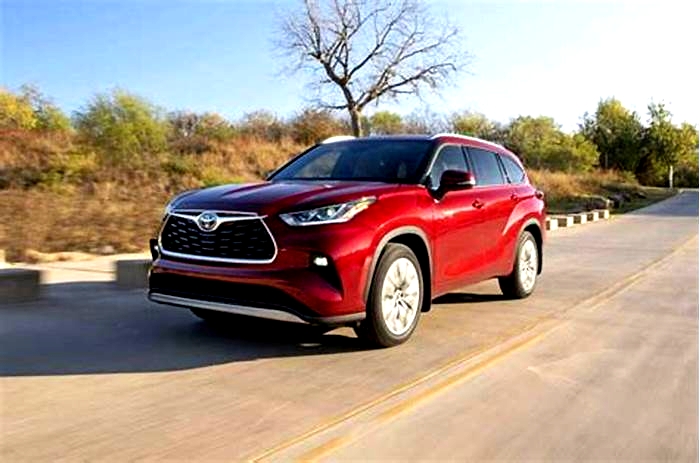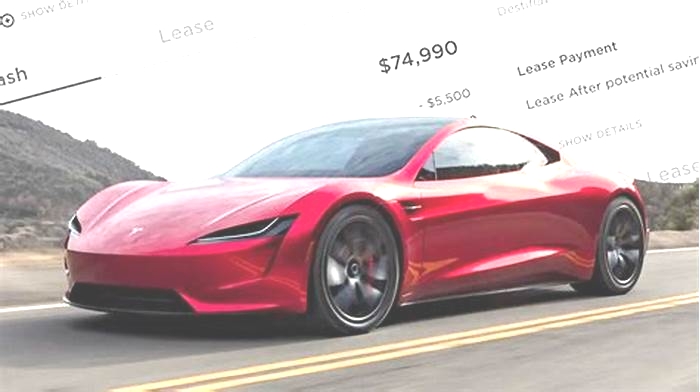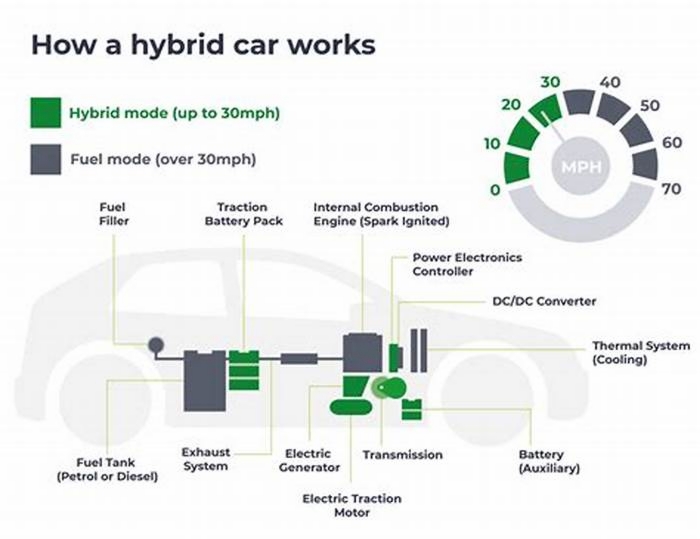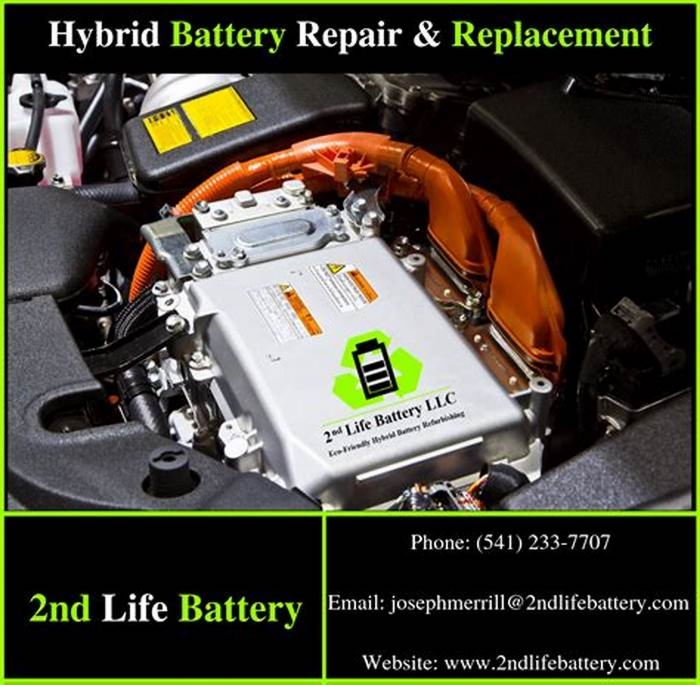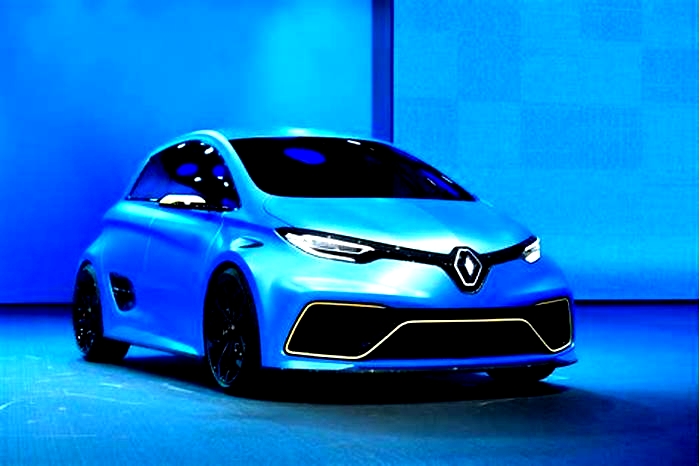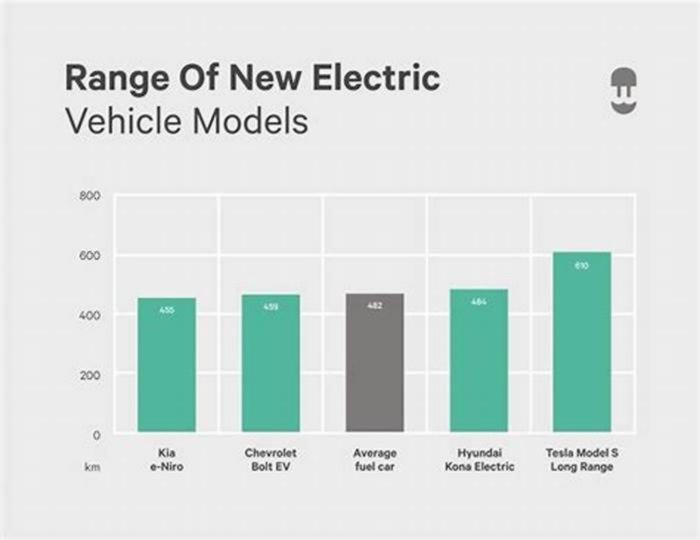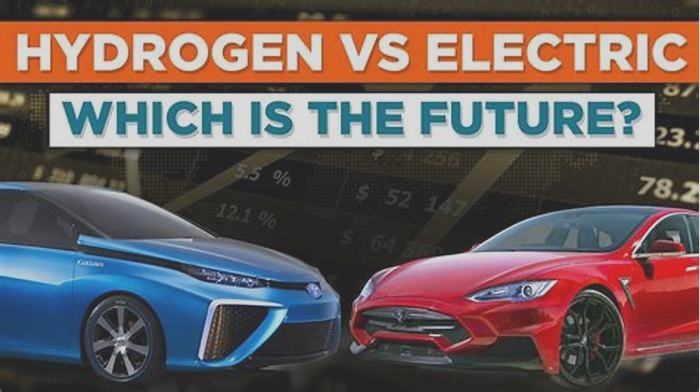Are electric cars worth it
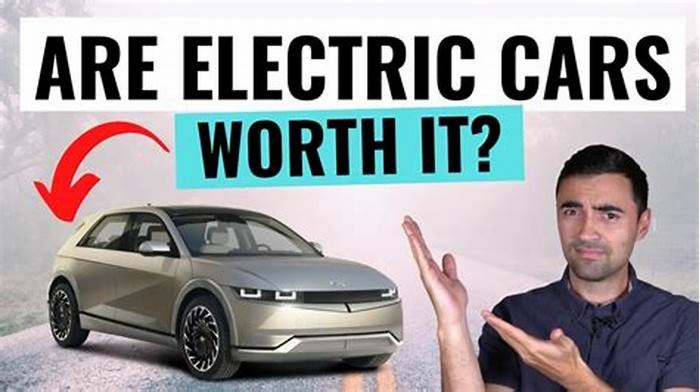
Should I buy an electric car in 2024?
EVs are popular, but are they right for you?We go through the choices youll need to make Range, buying used and more all explained
Its no secret that electric cars are properly here and theyre here to stay. They made up nearly a fifth of the new car market in 2023 and so far in 2024, thats continued.
Manufacturers are capitalising on this and offering more and more EVs for sale. The cheapest electric cars are beginning to come close to achieving price parity with petrol or diesel cars; used EVs are also becoming realistic propositions for those in the market with a smaller budget.
At the other end of the scale, more expensive EVs are pushing the envelope in terms of performance the fastest electric cars and the longest range electric cars put out some seriously impressive numbers.
With internal combustion engine (ICE) production set to stop in 2030, almost every brand has an electric-focused strategy, from the likes of Alfa Romeo to Rolls-Royce and everyone in between. But never mind the car industry or the politics that surround combustion cars should you, the consumer, actually buy an EV?
Its a question on many motorists lips as we prepare for 2024. On this page well walk you through everything you need to know when deciding which powertrain is right for you and advise if an electric car is suitable. Well regularly update this page, with new information, advice, and insight when we get it. Keep reading for more.
How popular are electric cars?
Figures from the Societyof Motor Manufacturers and Traders (SMMT) reveal that more than 267,000 battery electric vehicles (BEVs, or full electric cars) were registered in 2023. Thats 40% more than in 2022.
Its the fastest-growing sector of the new car market right now, and for good reason. The technology is slowly maturing and will be suitable for many, but not all, motorists.
Price
Electric cars remain an expensive option on the forecourt, right now, and thats partly down to the materials and construction process they require as well as the huge R&D and investment costs borne by car manufacturers rapidly having to pivot from fossil fuels to battery tech. With that in mind, even the cheapest EVs in the UK are relatively expensive; the Tesla Model 3 costs more than 40,000 which isnt that affordable for many motorists.
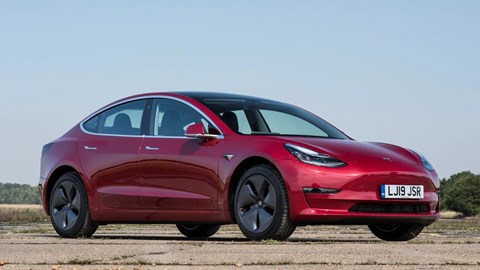
Whats more, it appears that the UK is one of the most expensive places to buy an electric car. Research from Confused.com revealed that the UK is the tenth most expensive country to buy a battery electric vehicle. This isnt helped by the removal of the governments Plug In Car Grant meaning there are no longer any incentives to reduce their cost.
Running costs of EVs will typically be cheaper than for a petrol or diesel car, and its worth working out exactly what youll save in the long run before you dismiss buying an electric car. Its not all about the purchase price, so be sure to consider the annual VED road tax bill, the likely fuel savings and especially any benefit-in-kind tax if you will be running your battery vehicle as a company car.
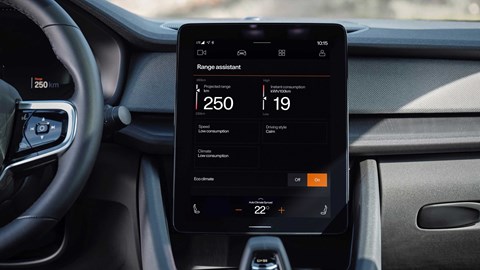
Range
If price is the first barrier of entry to EV ownership, range and the perceived lack of it has to be a close second. Range anxiety is still a factor for many motorists in 2024, though the actual range of most electric cars has moved on considerably in recent years.
Cars such as the Mercedes EQS 450+ can travel a WLTP-rated 453 miles between charges (London to Glasgow with around 40 miles to spare) and even the cheaper EVs like the Hyundai Kona Electric can now squeeze 300 miles out of their integrated batteries. With that in mind, its worth casting your eyes over our longest range EVs guide to get a better idea of what they can do in 2024.
More important, however, is to consider the number of miles youll do per day, per week or even per month. When paired with a home charger or local public power point most EV owners rarely approach the upper limits of their range, or they charge less frequently in public than youd expect.
Our advice? Tot up your most common journeys and your longest and youll see just how feasible having an electric car could be.
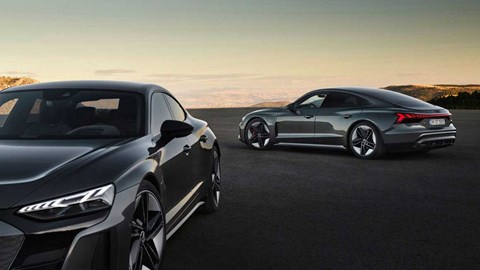
Running costs
EVs provide environmental benefits thanks to their lack of tailpipe emissions, but they also provide a substantial saving in running costs, if your energy bills havent jumped too high since the cost-of-living crisis. The gap between electric refuelling costs and fossil fuel bills has narrowed significantly in 2024, so check your domestic charging rate to calculate the likely charge for topping up the battery at home.
While charging costs have risen in recent months, dont forget that servicing and maintenance of electric cars should be more affordable, as they have fewer moving parts and should cost less to service.
Check our EV running costs article above, and youll see just how cheap an electric car can cost to run, especially when compared to its petrol or diesel-engined counterparts. The only catch? As weve already mentioned, EVs cost more to buy in the first place so youll be paying a premium up front.
Charging times
When you do have to top up the battery, youll want to do it as fast as possible. Charging an EV still isnt as quick as refuelling a petrol, diesel or hydrogen car but topping up an electric car is gradually speeding up. For example, according to research byLeasing Options, the quickest charging car is the Fiat 500e, which takes 24 minutes. Of course, thats only 81 miles added in that time, so remember: the bigger the battery, the longer it takes to charge.
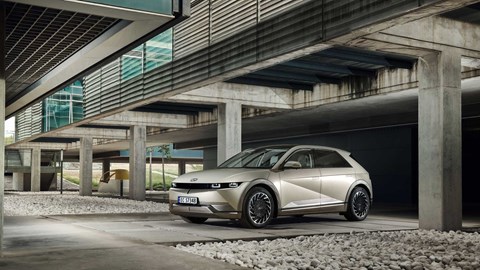
For more miles, but longer charging time, the Mini Electric gives you 105 for just 30 minutes of charging.
Small EV charging costs
| Charge cost () | Cost per mile (p) | Miles added | kWh added | Real-world electric range (miles) | Charge time (minutes) | |||
1 | Fiat | 500 Hatch | 5.76 | 7.1 | 81 | 19 | 101 | 24 |
2 | MINI | Electric | 7.82 | 7.5 | 105 | 26 | 131 | 30 |
3 | Honda | e | 8.52 | 8.3 | 103 | 28 | 129 | 36 |
4 | Mazda | MX-30 | 8.52 | 9.1 | 94 | 28 | 118 | 36 |
5 | SEAT | Mii Electric | 8.83 | 7.2 | 122 | 29 | 153 | 36 |
What type of electric car to buy?
If youre warming to the idea of an electric car, its worth working out what sort of vehicle type youre after. In 2024, EVs come in all the same shapes and sizes as normal cars; from SUVs and small city runarounds to seven-seaters and even sports cars.
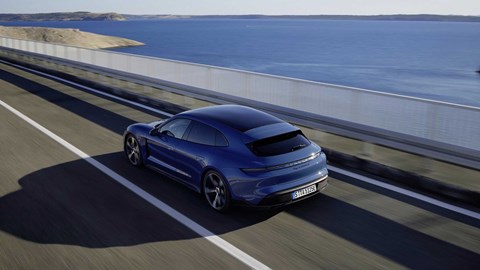
If youve a family in tow, wed recommend some of the larger electric SUVs, like the Audi e-Tron and Mercedes EQC, and if youre looking for performance and style something like a Porsche Taycan or Audi e-Tron GT should be at the top of your list. Lastly, if youre after a more all-purpose vehicle, investigate cars such as the Honda e, Kia EV6 or Tesla Model 3.
Once youre decided what sort of EV you want to buy, browse our buying guides based on each car type below:
New or used or lease?
Electric cars are expensive new, and huge savings can be had if you go for a used model. As youd expect, theres a little stigma around electric cars; mainly due to worries over battery lifecycles but weve done the research and found several great picks in the electric secondhand market. You can read our best used EVs guide here.
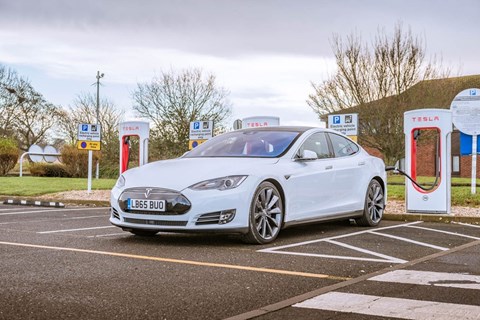
One thing to bear in mind, though. Such is the pace of development around EVs, that older used cars wont have anything like the headline stats and range figures you see in brand new cars such the Hyundai Ioniq 5.
Leasing represents a third, and increasingly popular, option for prospective EV buyers. According to Leasing.com, demand for EVs rose by 106% last year, outperforming diesels. And BEVs rose by 101% in terms of interest, accounting for 16% of all the companys inquiries.
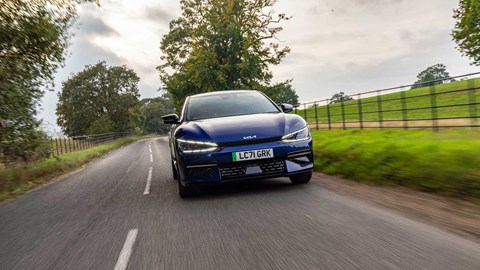
Verdict: should you buy an electric car in 2024?
Ultimately, only you can decide if its time to buy an electric car as only you know your usage habits and budget.
If an EV is in your price range, and range isnt going to be a problem based on typical journeys, getting an electric car is a great idea. Not only is it cheaper to run, but its also eco-friendly, usually nippy and a way to futureproof your transport solution for years to come.
Things will only get better in our view;EV infrastructureis being improved all the time, so chargers will become an increasingly common sight at Britains service stations and high streets.
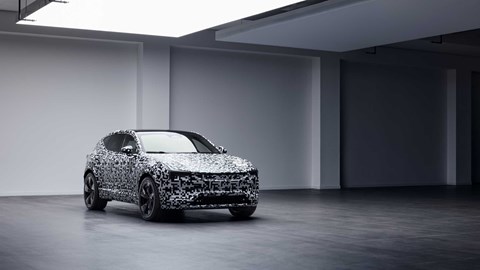
However, if the numbers dont add up, or youve still got doubts why not wait for an even moreadvanced electric car in the future or simply pick a hybrid car as a compromise for the time being?
A neat stepping stone between electric and petrol, thebest hybrid carsoffer many of the benefits you get with EVs, but also have the range and ease of use of a traditional ICE engine.
Electric cars are getting better and better, but theres no rush: not everyone can afford to be an early adopter and it might be the right call to wait until the technology improves, prices fall and the charging infrastructure expands.
Are Electric Cars Worth It?
On average, electrical energy costs as low as $0.13 per kWh at home, and up to $0.60 per kWh at the most expensive Level 3 DC fast chargers. Many electric cars get somewhere around three to four miles per kWh.
Lets take the worst-case scenario, using the most expensive rate of $0.60 per kWh and a lower efficiency EV that only gets three miles per kWh. For this situation, $4 in charging gets you about 6.7 kWh. At three miles per kWh, that equals about 20 miles for $4.
For $4, the ICE vehicle gets 25 miles, and the EV is only 20. As you can see, EVs arent always cheaper to charge than ICE cars are to fill up.
But the most expensive recharge rates are usually for specific fast chargers. Home chargers are often significantly lower, sometimes as low as $0.13 per kWh, plus many charging stations offer $0.20 to $0.40 per kWh rates.
If you use a $0.30 per kWh charger, at home or away, and you have a more efficient EV that gets four miles per kWh, the results are much different. $4 in charging gets you 13.3 kWh, which allows you to drive approximately 53.2 miles.
Thats nearly double what the gasoline car can drive on the same $4. Should I get an electric car? Yes, especially if you can charge for a lower per kWh rate and obtain a more efficient EV.
And the savings dont stop there.
How Long Do EV Batteries Last?
Another major consideration when answering, Are electric cars worth it? is the longevity of the batteries. They are the primary power source, and an EV cant function without one, just like an ICE vehicle without a fuel tank.
Now heres the good news. How long do electric cars last? Electric vehicle batteries can last a very long time.
Most EVs use a battery designed to last 10 to 20 years before needing replacement, which can cost anywhere from $2,000 to upwards of $20,000.
How does this compare to an internal combustion engine? Pretty firmly in favor of EVs.
A 5-year, 60,000-mile warranty is decent coverage from an automaker. The average lifespan of most ICE cars reaches around 130,000 miles or just under 11 years, according to the Bureau of Transportation Statistics.
This means that if your EV battery lasts a minimum of 10 years, it has likely survived as long as most ICE cars. If the EV battery lasts up to 20 years, thats nearly double the lifespan of most ICE engines.
Take a moment to let that soak in. You can get nearly double the life of one battery pack in an EV. If youre looking for electric car advantages, this is a major one.
On top of that, according to the National Science Foundation, your old EV battery can be repurposed once it is not ideal for your vehicle.
They can provide energy storage for a solar energy system. Some companies are even using them to create large-scale commercial backup power systems.
On the other hand, engines require constant maintenance and upkeep. Its like that even if your engine runs for 11 years, it will need significant repairs along the way on top of routine oil changes and maintenance.
As a result, the EV batteries can last much longer from the start, provide significant savings on maintenance costs, and almost always have residual value as an energy storage device.
The Difference in Purchase Price
So far weve covered charging costs, which can be significantly cheaper than gasoline or diesel fuel costs. And weve seen how EV batteries can last a very long time, especially compared to combustion engines and their expensive maintenance.
But if youve shopped around for an electric vehicle, you might encounter sticker shock. Many EVs are high price cars, while ICE vehicles can be much lower.
On top of that, an EV home charging system can cost between $1,400 and $4,100 to install, according to the US Department of Transportation.
So what does this mean for you? Are electric cars worth it?
That depends. If you are looking to purchase a very cheap ICE vehicle and are unable to find similar electric vehicles in your price range, its probably not economically worth it to go over budget for an EV.
On the other hand, if youre considering two similarly-priced vehicles, one EV and one ICE, the EV can save you loads of money.
Lets do a quick example to see why.
If fuel costs $4 per gallon and you have an ICE vehicle that gets 25 miles per gallon, it will cost you about $1,920 to drive 12,000 per year.
Meanwhile, lets say you have an average charging cost of $0.30 per kWh and an EV with four miles per kWh. That results in $900 to drive 12,000 per year.
Under these conditions, it is about $1,020 cheaper to have the EV per year or about $10,200 over ten years. Even after including the cost of a home charging station, youre still in the green with just one car.
Additionally, the EV savings increase over time.
If you drive the same EV for 20 years while a similar ICE car only lasts 10, its double the value. Youll save $20,400 in fuel costs, plus any maintenance costs and the price of an entirely new ICE vehicle.
The initial cost of a home charging station might seem painful the first year, but if you use it for 20 years, the monthly price is very low.
Are electric cars worth it? If you can find one in a similar price range as an ICE car and you plan to stick with it long term, then an electric vehicle is well worth the price.
Practical Pros and Cons of Electric Vehicles
Weve now explored many differences in cost between traditional internal combustion engine cars and modern electric vehicles.
Now its time to consider some of the more practical sides of electric vehicle ownership, including some of the downsides of owning an EV.
Speed, Acceleration, and Handling
One of the main differences in electric vehicles is power delivery. Combustion engines can provide a lot of power, but they also require time to build and deliver that power.
Electric vehicles are different. They deliver full power immediately, giving most EVs incredible acceleration and speed. Even the American Chemistry Society has been excited about EV performance.
On top of that, the battery pack is placed low in the vehicle compared to large engines.
This lowers the center of gravity, allowing electric vehicles to have superb handling and cornering abilities. The heavy, low battery packs provide stability through tight corners and can be a blast to drive with their instant acceleration.
This is one of the many benefits of electric cars. And if youre asking yourself, Why should I get an electric car? its important to keep this driving difference in mind, especially if you like high-performance vehicles and have a spirited driving style.
Range and Charging Time
But not all things are perfect. One of the most prominent downsides to electric car ownership is the limited range and charging time.
Many electric cars feature a 200 to 300-mile range on one full charge. This can take care of most needs around town, allowing you to recharge at home overnight at a low cost and have another full day of power ready to go each morning.
The hidden costs of owning an electric car become more transparent when completing extended drives.
While you might have an ICE vehicle with a similar 300-mile range, those are easy to refuel and hit the road in minutes at nearly any gas station.
Electric vehicle charging stations are becoming more widespread, but they still require significant time for charging. The charging time depends on the level of charger you have access to and the size of your battery pack.
Level 1 chargers, a standard 110-120 volt outlet, can take anywhere from 10 to 40 hours to charge fully. That is reduced to a much better 3-5 hours on a Level 2 charger, which is what most home charging stations are.
The most rapid charging, Level 3 DC fast chargers, can provide a significant 80% charge in as little as 20 to 40 minutes. These are great for extended road trips, but theyre likely to have the most expensive per kWh cost.
Nonetheless, if you can find Level 3 chargers, extended trips with rapid recharging can happen with electric vehicles.
For most people, daily demands are covered by overnight charging at home. Youll never have to stop at the gas station before or after work again. And you can tackle most weekend warrior excursions without a problem.
Moreover, the range of electric vehicles continues to expand, and more DC fast chargers are popping up. It is now much easier to find a charging station along major transportation routes and in most cities.
What Happens If My Electric Car Runs Out of Battery?
Its like running out of fuel. The car doesnt just stop without warning, it gives you an alert when the battery runs low. Should the battery run low enough, youll lose propulsion power, which is noticeable.
Unfortunately, you cant walk to a gas station and fuel up. You need to pay attention to low battery alerts and get to a charging station quickly. If not youll need to be towed to a charging station. For those concerned about running out of battery power, consider carrying a portable charger.
Do Electric Cars Lose Charge When Parked?
Yes, electric cars lose charge while parked, but it happens slowly. Its a good idea to charge an electric car at least halfway before parking or storing it. The battery can deplete entirely over two to three months if not charged.
Wrap Up: Are Electric Cars Worth It?
As the automotive world continues to provide more electric vehicle options, they become more attractive and economical solutions.
Electric vehicles can have significant cost-per-mile savings, with most at-home charging significantly less than the cost to refuel with gasoline. The range continues to expand, along with DC fast charging stations to allow for extended drives.
While the upfront cost might be higher, the longevity of EV batteries and the lack of routine maintenance allow EVs to have a lower cost of ownership when carried out over a 10 to 20-year lifespan, even after paying for a Level 2 charger home installation.
Are electric cars worth it? In one word, absolutely.

